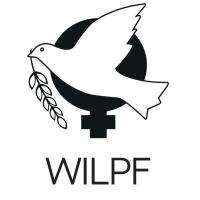The dream and the reality, Are our international institutions fit for purpose?

This lecture seeks to explore how we have arrived at our current gridlocked system of international institutions, and what can be done to make it work.
Abstract: Since the creation of the League of Nations, its failure, and the creation of the United Nations post World War II, there has been a consensus on the need for a formal regulatory framework to manage international relations.
From the Charter of the UN and the Universal Declaration of Human Rights, an international normative framework has evolved and progressed. There are human rights norms, Security Council resolutions on Women Peace and Security, courts to adjudicate international disputes, to bring to justice perpetrators of international crimes and a plethora of UN agencies and functionaries with mandates to oversee implementation.
But, the system is not working. Whilst the principle of convergence of international law gains traction amongst practitioners and civil society, states and 'interests’ do the opposite, witness the TPP, and the subordination of the doctrine of the Responsibility to Protect to one which justifies military intervention,- the now default position of international diplomacy.
Building on the outcome of WILPFs 100th anniversary in The Hague last month, I will seek to explore how the system has reached this impasse, and what can be done to re-claim it and make it work. I will argue the need to address structures of power /political economy from a gender perspective, the absolute need to address militarism, its impact on equality, and what new thinking there should be in engaging with neo liberalism.
Madeleine Rees OBE has been closely engaged with international institutions for the past two decades. She has appeared in international courts and tribunals and worked for the United Nations in the field and at headquarters. During her time working for the Office of the High Commissioner for Human Rights as the gender expert and Head of Office in Bosnia and Herzegovina, she helped expose human rights abuses related to the sex trade in Bosnia; this was dramatised in the 2010 feature film The Whistleblower. In her current role as Secretary-General of WILPF, Ms Rees directs one of the most influential women’s rights NGOs. For more information visit Madeline's WILPF profile.
Presented by the Centre for International Governance and Justice, RegNet






